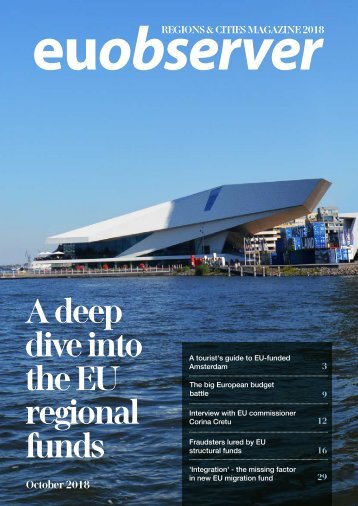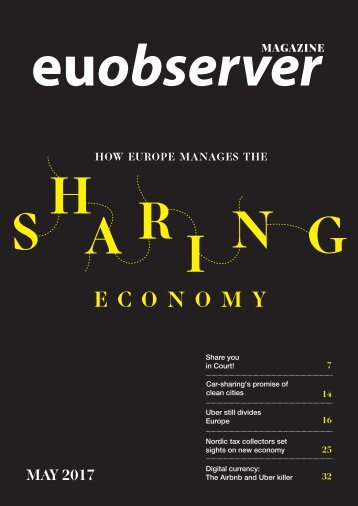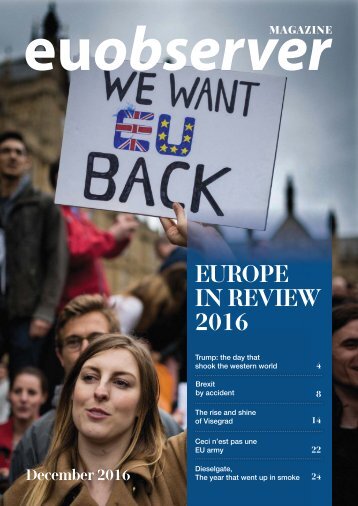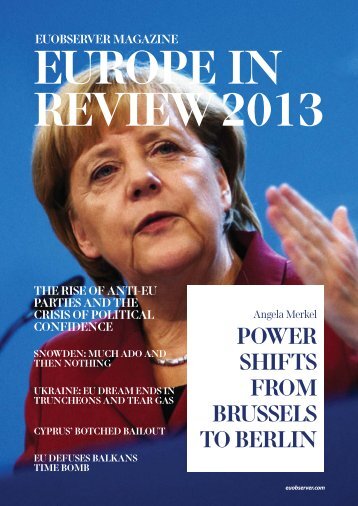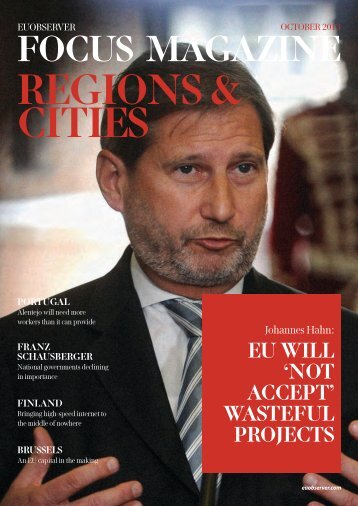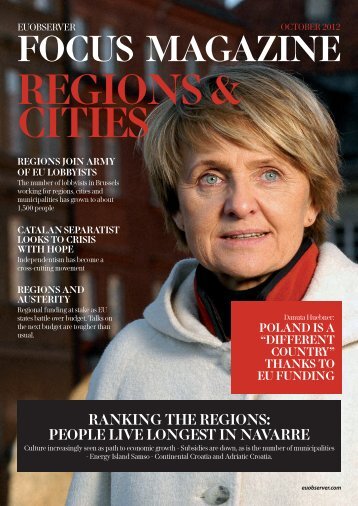Regions & Cities: The EU Agencies Race
- Text
- Regions
- Agencies
Photo: oaosso Nine
Photo: oaosso Nine EU agencies and institutes were originally divided among member states at an EU summit in December 1993. Photo: oaosso should be based in Parma. Helsinki got the seat of the European Chemicals Agency, and another seven already-established or proposed agencies were distributed. PRIORITY FOR NEW MEMBER STATES The distribution of agencies among existing EU members was concluded some months before ten Central and Eastern European countries would join the EU, but the government leaders wrote in a declaration that for future hosting decisions of agencies, "priority" should be given to new member states. That worked for several years, with new agencies being located in Poland, Hungary, Malta, the Baltic states, and Slovenia. In July 2008, EU leaders confirmed their commitment in another declaration, saying: "Seats of future offices or agencies should be primarily located in the member states that acceded to the Union in or after 2004, while appropriate priority should be given to the member states that do not already host an EU office or agency." But just three years later, that promise was broken. As part of the EU's attempt to prevent future banking crises, three financial agencies 16 — REGIONS & CITIES OCTOBER 2017
were set up, including the European Banking Authority (EBA). The three were divided amongst the big three EU member states: Germany, France, and the UK. The EBA was to succeed the already existing London-based Committee of European Banking Supervisors. Initially, the EU parliament wanted the EBA to be located in Germany, near the Frankfurt-based European Central Bank. But then UK finance minister George Osborne managed to convince his peers and achieved, in the words of the UK newspaper, the Telegraph, an "EU victory" by keeping the EBA in London. But five years later, in 2016, British citizens voted to leave the EU, leaving the EBA up for grabs again. Photo: oaPaat REGIONS & CITIES OCTOBER 2017— 17
- Page 1 and 2: REGIONS & CITIES MAGAZINE London
- Page 3 and 4: London prepares to say goodbye to E
- Page 5 and 6: and conferences. Securing the reloc
- Page 7 and 8: Photo: ta s the road and we are pro
- Page 9 and 10: Photo: undertakings are largely u
- Page 11 and 12: REGIONS & CITIES OCTOBER 2017— 11
- Page 13 and 14: Photo: Baaa decide to put the Unit
- Page 15: Verhofstadt (r) and other EU leader
- Page 19 and 20: people are happy and we don't have
- Page 21 and 22: Photo: Aeey ooyaiy spaces in the c
- Page 23 and 24: Photo: roeaommiio It is also next t
- Page 25 and 26: CYCLING Accessibility is one of the
- Page 27 and 28: CONSTRUCTION EQUIPMENT SECTOR IN EU
- Page 29 and 30: Five kilometres north of Alicante a
- Page 31 and 32: Mediterranean coastline. According
- Page 33 and 34: British home in Bramshill. Photo: L
- Page 35 and 36: Coming to work in a country with 20
Inappropriate
Loading...
Mail this publication
Loading...
Embed
Loading...







